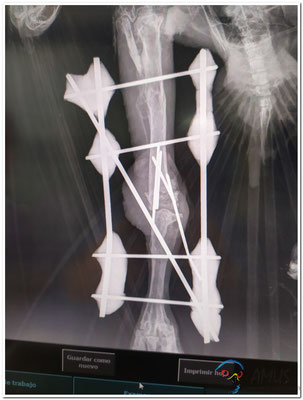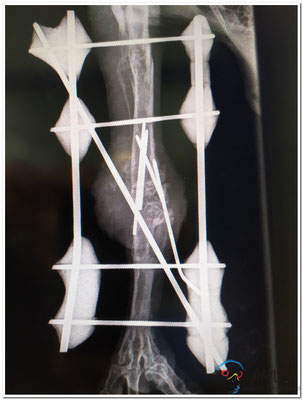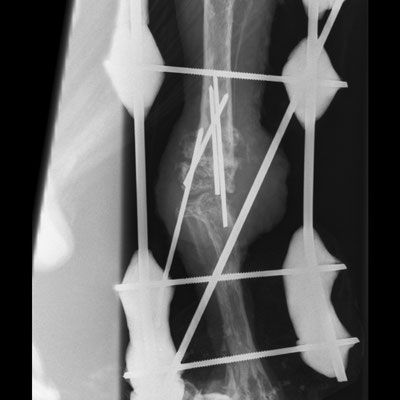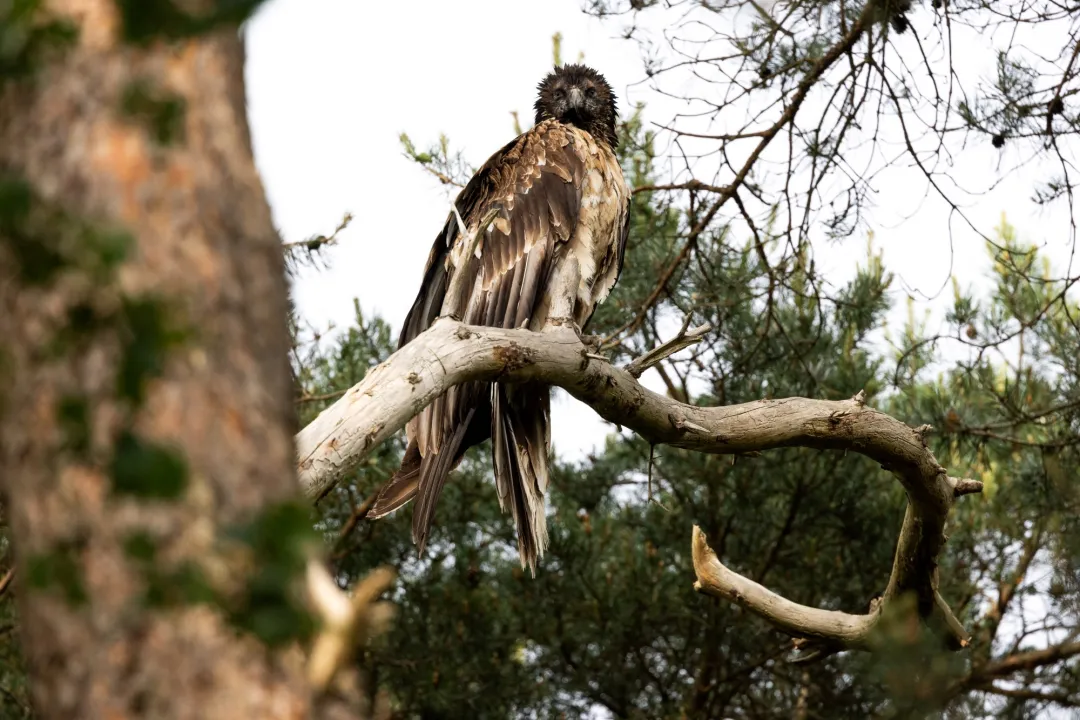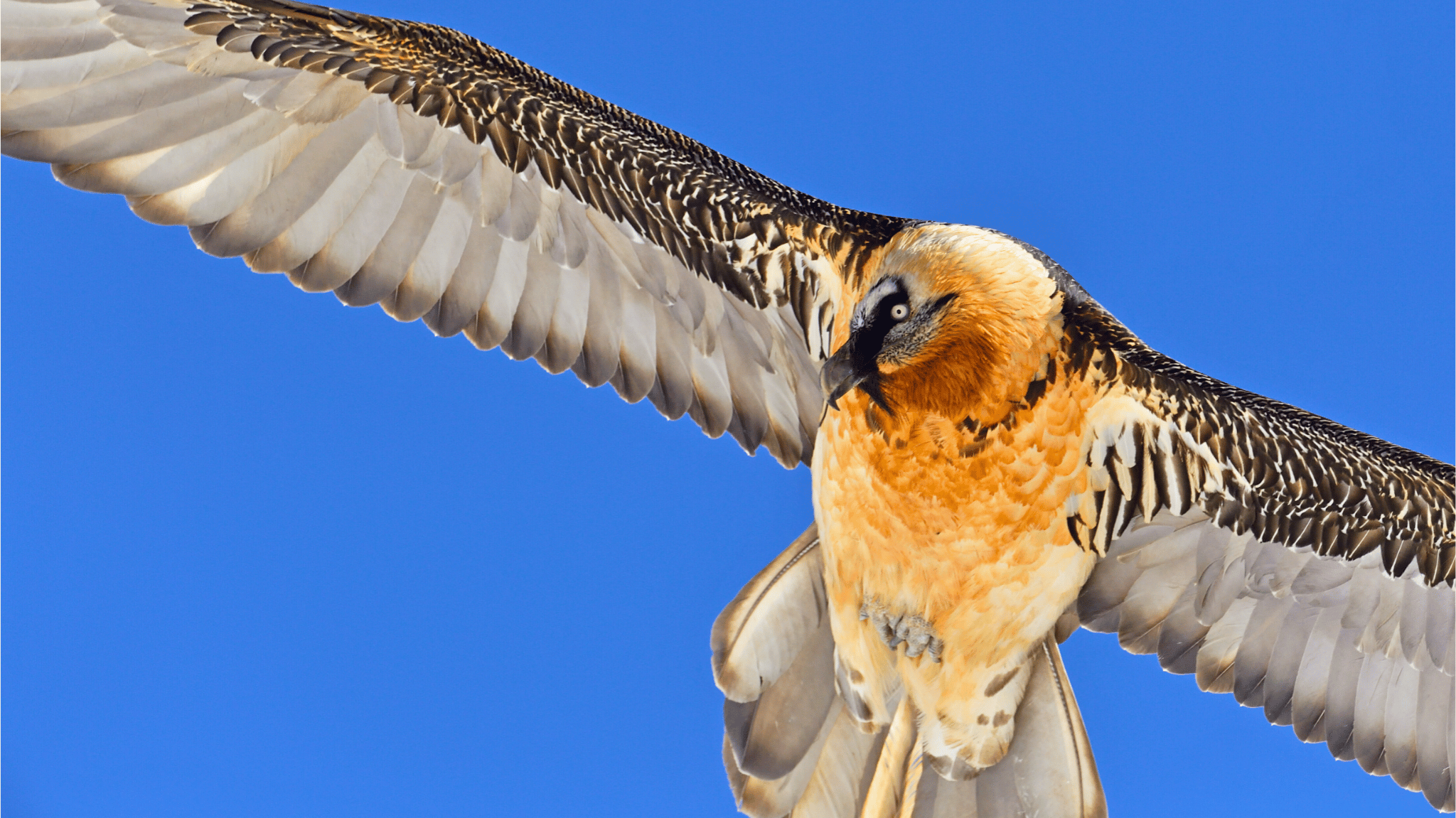
This past Sunday, a very challenging surgical procedure was undertaken to save Bearded Vulture Flamadel thanks to the many inputs and dedication of many stakeholders. So far, the surgery was a success, but there is a long recovery process ahead for the vulture.
Bearded Vulture Flamadel
Flamadel descends from a pair from the French Pre-Pyrenees that is monitored within the LIFE GypConnect project. Its genetic profile is considered very important for the Bearded Vulture captive breeding network, an essential programme for the species’ reintroduction across different regions in Europe. This Bearded Vulture was rescued as a chick in the French Pyrenees with a fracture in one of its legs, and in 2017 entered the recovery centre of Valcallent owned by the Generalitat de Catalunya.
The Bearded Vulture EEP (European Programme of Threatened Species for the Bearded Vulture), coordinated by us here at the Vulture Conservation Foundation, decided to transfer Flamadel to the AMUS hospital to exhaust one of the few orthopaedic options for the severe condition in its leg. The objective was that Flamadel could use both legs and thus be a suitable candidate for the breeding stock that we manage at the specialised breeding centre of Valcallent.
Surgery
On Sunday 15 December, a team of AMUS, in collaboration with Bodión Veterinary Hospital, assumed a surgical challenge of very high demand and complexity. Thanks to AMUS, Bodión Veterinary Hospital, consultation from Olga Nicolàs (Forestal Catalana veterinarian in Vallcalent Recovery center ) and Álex Llopis (VCF’s Vultures Captive Breeding Manager) together with the significant advances in avian orthopaedics from recent years and great collaboration and coordination among multiple stakeholders, the surgery proved to have favourable results so far! It is still too early to foresee the future of the vulture following the surgery. Nonetheless, necessary first steps have been taken for this vulture’s health, but also for the future of vultures that might experience similar medical conditions. We now have to wait too see the outcome of this surgery, which has a long recovery process ahead and the team at AMUS will work hard to make sure the Bearded Vulture heals. We hope that Flamadel survives and we will report on the outcome – hopefully, a positive one!
Update 10/01/2020
Yesterday, the team at AMUS anxiously carried out a radiology exam to see his progress, and it seems that everything is evolving well! Little by little, his leg is healing following the surgery. Today, the second round of antibiotics begins as well as alternating physiotherapy with an orthopaedic shoe, to get rid of the muscular tensions so that he will be able to open his claw normally and smoothly.
Update 29/01/2020
On Wednesday 29 January, the team at AMUS reviewed the progress of Flamadel’s recovery. The X-ray and his health status indicate that he is recovering quite well with the nails fixed in the joint of his damaged leg. The second cycle of antibiotics is also over and it seems that osteomyelitis and possible infections are kept at bay. In one month the team at AMUS hopes to close this great surgical challenge developed.
We hope the vulture will make a full recovery and has a bright future ahead!
Bearded Vultures in the Pyrenees
The Bearded Vulture worldwide, according to the IUCN (International Union for the Conservation of Nature) is considered ‘Near Threatened’. In Spain, within the national catalogue of endangered species, it is considered ‘Endangered’. This bone-eating vulture is probably one of the species with the most mystery and magic generated around its biology and the mountainous territories where it lives. Europe and specifically the Pyrenees treasure the species with about 130 breeding pairs.
We are glad to see the continued commitment across various institutions to help save Bearded Vultures! This was not possible without AMUS, Bodión Veterinary Hospital, Junta de Extremadura (for its speed and efficiency in the relevant authorisations) and our very own Álex Llopis (VCF’s Vultures Captive Breeding Manager) and Olga Nicolàs for their consultation and coordination. Special thanks also go to the Veterinary Hospital Bodión de Zafra, EEP (European Programme of Threatened Species for the Bearded Vulture), Bearded Vulture Breeding Unit of the recovery centre of Valcallent, Generalitat de Catalunya and DGS (Directorate General of Sustainability) of the Regional Government of Extremadura.

